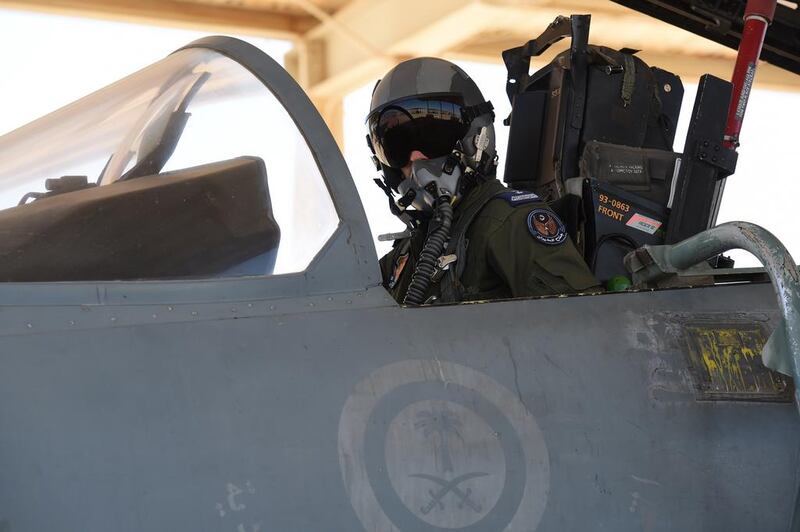In a significant development in the conflict in Yemen, the pro-legitimacy Hadramaut elite forces are continuing Al Faisal Operation in Wadi Al Masini in Hadramaut.
Under massive aerial support provided by the Saudi-led Arab coalition forces’ fighter jets along with efficient contributions by the UAE forces, the Hadramaut elite forces have managed to entirely liberate the valley and expunged Al Qaeda militants from the area following a massive offensive.
The air force played an eminent role in bombarding the terrorist organisation’s strongholds, coupled with attacks by the land forces who showed full combat readiness in their fight against terrorism.
The Hadramaut forces gained full control over an operation room run by Al Qaeda militants in the valley and confiscated the equipment and ammunition used by the terror group in carrying out its criminal operations.
While combing the area, large caches of ammunition, including mortar guns and missiles were found and the Yemeni forces secured the entire zone by staging military posts and patrol units across the surrounding plateaus to pre-empt any counter-offensives by the terrorists.
Meanwhile, the World Health Organisation (WHO), with support from the Emirates Red Crescent (ERC), has begun distribution of medical aid and supplies to 20 health centres in 10 Yemeni governorates in the temporary Yemeni capital, Aden.
Some of the medical supplies were sent to health centres in Ash Shihr and Tarim in Hadramaut Governorate and Marib General Hospital, as well as to health centres in Al Khabr and Lawdar in Abyan Governorate and Mocha General Hospital in Taiz Governorate.
Dr Ali Al Waleedi of the Yemeni ministry of pulic health stated that the medical aid provided by the ERC to the WHO and distributed to 10 Yemeni governorates under the ministry’s supervision is part of the UAE’s ongoing support for the health sector in various Yemeni governorates, which has helped strengthen its performance and offered therapeutic services to the Yemeni people.
He also praised the UAE’s desire to support the health sector in liberated Yemeni cities and restore many key facilities that provide Yemeni families with essential services, such as electricity, healthcare and food, to the benefit of the Yemeni citizens.
Juma Abdullah Al Mazrouei, head of the ERC Team in Aden, said that the ERC has helped in restoring normal living conditions in Yemen, which reflects the support of the UAE wise leadership for the future of the Yemeni people, and their desire to ease the suffering caused by the Iranian-backed Houthi militias, as well as their efforts to provide for the basic living requirements of Yemenis.
He added that the UAE remains at the forefront of answering the calls of the authorities and social figures in the liberated areas in Yemen for urgent humanitarian intervention and aid for needy families, through launching hundreds of convoys carrying thousands of tonnes of food and relief aid, as well as implementing development projects that have eased the humanitarian suffering of local people.
Emirati ships also transported nine containers of medicine from the ERC, which arrived yesterday at Aden Port and were delivered to the WHO, to be distributed to various Yemeni governorates.
The UAE signed a partnership agreement with the WHO, valued at AED55 million, which includes the restoration of 20 hospitals and health centres in nine governorates, as well as the launch of a joint outreach campaign against polio, measles and other diseases in 11 governorates, valued at US$1.752 million while the UAE has helped combat a cholera epidemic in 23 Yemeni governorates.





